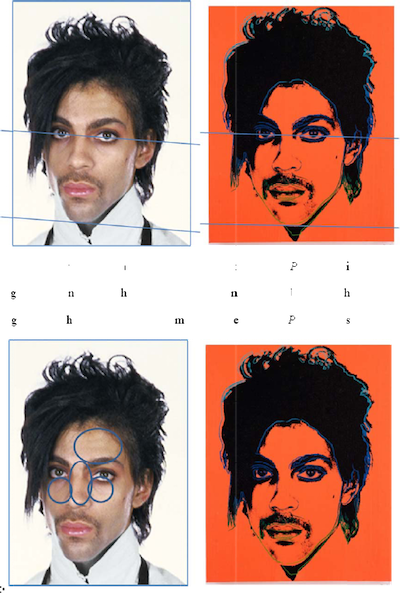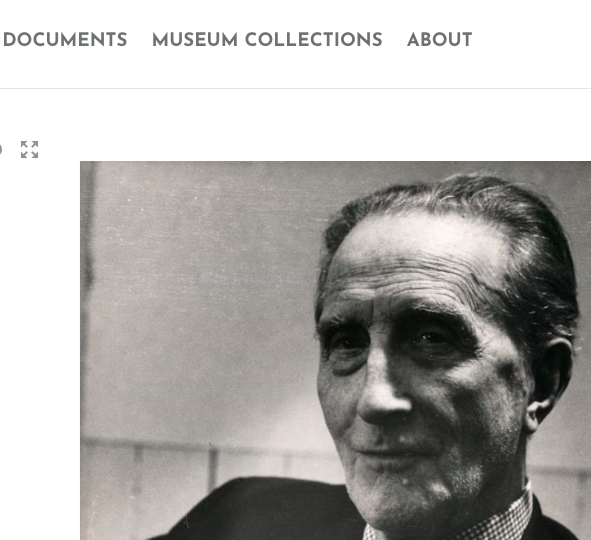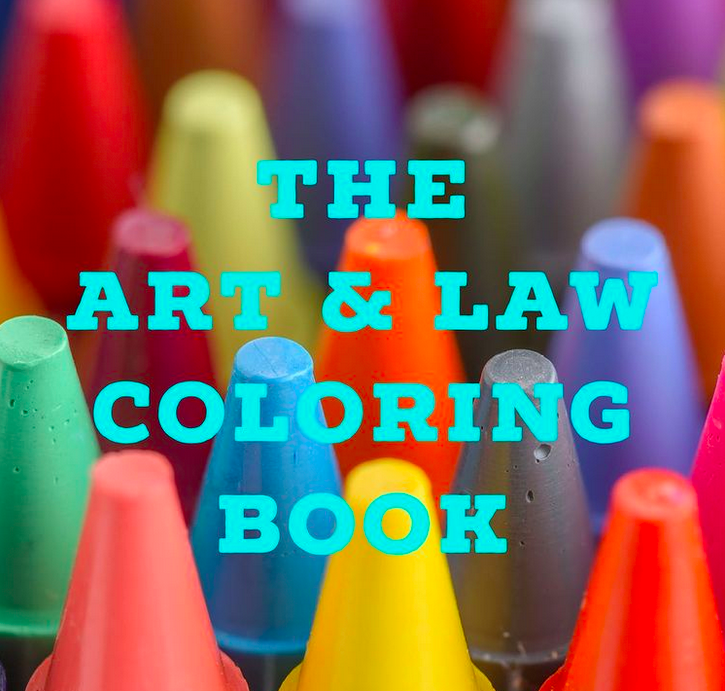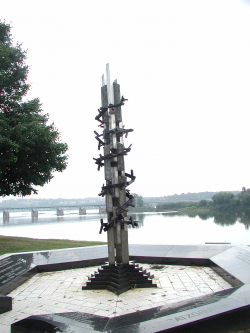 Who said moral rights cases don’t have happy endings?
Who said moral rights cases don’t have happy endings?
Remember last year’s Visual Artists Rights Case, David Ascalon v. The Jewish Federation of Greater Harrisburg? If you don’t, here’s a quick recap.
In July 2010, the New Jersey artist David Ascalon filed an action in U.S. District Court for the Middle District of Pennsylvania asserting that his rights under the federal Visual Artists Rights Act of 1990 (VARA) had been violated with respect to a sculpture he created for the Jewish Federation of Greater Harrisburg: a Holocaust Memorial on the banks of the Susquehanna River in Pennsylvania’s state capital, which was installed in 1994. The complaint alleged that Ascalon’s rights under VARA, which limits how an artwork may be altered or disposed of, were violated by restoration of a decaying element of the original sculpture in which a rust-colored “barbed wire” serpentine element was replaced with stainless steel.
The case has come to a conclusion, as both parties have reached an amicable solution.
The substance of the settlement provides the sculpture will be retrofitted in a manner that upholds the artist’s original intent at minimal costs to the defendants. The original artist shall be provided access to the sculpture to remake the “barbed wire” serpentine element in a highly durable rust-colored steel, and the original artist’s name shall be restored to the sculpture.
David Ascalon’s son, Eric Ascalon, had these words to say regarding the case and the settlement.
Under the terms of the settlement, I am happy to announce that my father’s sculpture will be restored in accordance with his original vision. Although the case did not get to trail and therefore no legal precedent was established, I nevertheless believe that this positive outcome for artists’ rights. VARA, here, ultimately did what it was intended to do without the need to got through a lengthy trial and appeals process. As knowledge of VARA and cases like these become more widely disseminated, those who would otherwise violate the moral rights of an artist will give pause.
Congrats to both parties for the amicable settlement!

According to The Bay Citizen, the Jeff Koons balloon-dog book-end fiasco has come to an end (pun intended).
Park Life’s co-owner, Jamie Alexander (defendant), noted that the store did not agree to a confidentiality agreement about their resolution with Koons, “which was important to him, as he and lawyer Jed Wakefield saw this as a win for underdogs. ‘This is a victory for the little guy standing up to a bully. Also, it’s about the absurdity of the art world,’ said Alexander.”

The public has the right to take pictures of public buildings from public spaces.
According to the paper of record, last October, the New York Civil Liberties Union reached a settlement with the Federal Protective Service (FPS) of the Department of Homeland Security, where the FPS pledged to inform its officers through a bulletin of the public’s general right to photograph the exteriors of federal courthouses. The three-page bulletin reminds officers, agents and employees that, “absent reasonable suspicion or probable cause,” they “must allow individuals to photograph the exterior of federally owned or leased facilities from publicly accessible spaces” like streets, sidewalks, parks and plazas.
If you’re a photographer, videomaker, or filmmaker, you can download the bulletin here. Make sure to carry it with you just in case.
Many thanks to my good friend for sending this along.
Yesterday, a federal judge dismissed a lawsuit accusing Christie’s auction house of failing to recognize a $100 million drawing by Leonardo da Vinci and selling it for $21,850. Christie’s incorrectly identified it as the work of an unknown German artist, according to the lawsuit filed by its former owner Jeanne Marchig who asked Christie’s to handle its sale. U.S. District Court Judge John Koetl tossed the case out on Tuesday, ruling that too much time had passed since the sale for Marchig’s claims to be legitimate.
Via Reuters.
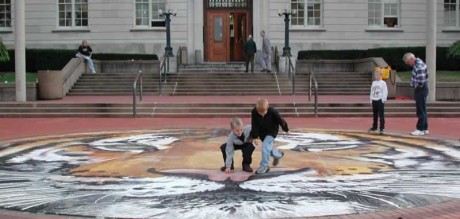
Yes, you guessed right. Another VARA case down under. Down south that is.
Artist Paul Jackson has sued the University of Missouri alleging the university violated his moral rights under the 1990 Visual Artists Rights Act when the university failed to protect, secure, and keep the glass-tiled “Tiger Spot” mosaic from being damaged. “This lawsuit, though regrettable, is necessary,” Jackson told the Columbia Daily Tribune in an e-mail. “I have tried for years in good faith to negotiate a solution with MU administrators, to no avail. MU’s previous offers to move the mosaic or have me sign my rights away ranged from insulting to ridiculous.” Jackson is asking for the university to resume repair efforts and for damages in excess of $75,000.
A University of Georgia art student faces misdemeanor charges of animal cruelty for allegedly crushing several mice to death. The art student, Mark Starling, allegedly took a 2 x 4 piece of wood and crushed each mouse. Georgia police allege it is not so much the fact that Starling killed the mice, but rather the manner in which Starling proceeded to dispose of them.
Georgia’s chief of police commented: “I don’t look for this individual to go to prison by any means. He’s looking at probation, community service, maybe some counseling[.]”
 Who said moral rights cases don’t have happy endings?
Who said moral rights cases don’t have happy endings?
